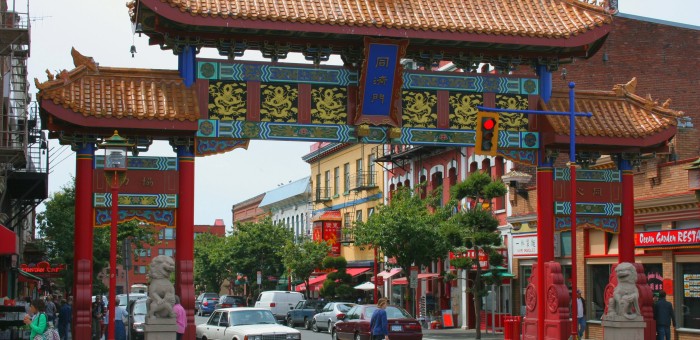Apology for historical wrongs to British Columbians of Chinese descent
It was an historic day in the legislature today. To start, the Honourable Teresa Wat, Minister of International Trade and Minister Responsible for Asia Pacific Strategy and Multiculturalism tabled the Chinese historical wrongs consultation final report and recommendations. Premier Christy Clark subsequently introduced a motion which was debated for most of the day. The motion read:
Be it resolved that this Legislature apologizes for more than a hundred laws, regulations, and policies that were imposed by past provincial governments that discriminated against people of Chinese descent since 1871, when British Columbia joined Confederation, to 1947. These laws and policies denied British Columbia’s Chinese communities’ basic human rights, including but not limited to, the right to vote, hold public office, or own property; imposed labour, educational and employment restrictions; subjected them to health and housing segregation, and prevented them from fully participating in society. The House deeply regrets that these Canadians were discriminated against simply because they were of Chinese descent. All members of this House acknowledge that we all aspire to be a fair and just society where people of all nations and cultures are welcomed, accepted and respected.
Be it further resolved that the House acknowledge that the Chinese Canadian community endured untold hardships and persevered with grace and dignity. We acknowledge that despite being subjected to discriminatory laws, policies and practices, the Chinese community has made, and continues to make, substantial contributions to the culture, history and economic prosperity in our province.
The motion was approved unanimously with BC Liberal, BC NDP, BC Green and Independent member Vicki Huntington, all speaking in support.
Below is my contribution to the debate.
It’s a privilege to stand and offer my comments on what can only be described as one of the most important debates of this session. There’s no question that this apology is long overdue, and I thank the government, the official opposition and the many British Columbians who worked hard to bring it before us today. It’s a very important step forward.
The Chinese community has been a formative and essential part of our province since the 1850s. Right here in Victoria we are the proud home of the oldest Chinatown in Canada and the second-oldest in North America. Many of you will also know the historic Chinese Cemetery in the riding of Oak Bay–Gordon Head at Harling Point, a resting place and memorial site of honour for the pioneers of Chinese ancestry in our province.
The riding of Oak Bay–Gordon Head was represented for 17 years by third-generation Chinese Canadian Ida Chong, who was here on the floor of the House this morning. Like so many other people of Chinese descent, Ida’s family lived through the systemic discrimination that we are apologizing for today.
Ida’s grandfather was born in China and came to Canada in 1892. Her father, born in Cumberland in 1917, married her mother, Yokee Yee, who in turn came to Canada from China in 1952.
Ida went to Victoria’s Chinese Public School until her family moved to the Mount Tolmie area of my riding. Her father, Peter Chong, was active in the Chinese Consolidated Benevolent Association and Lung Kong Association.
Yet the unfortunate reality is that the history of relations between the Chinese-Canadian community and the B.C. provincial government is replete with government-imposed discrimination, hardship and injustice for this community. The moving story that the member for Burnaby North conveyed this morning is an example of how people of Chinese descent were affected.
That so many Chinese Canadians endured decades of discrimination at the hands of our provincial government and yet remain proud British Columbians today is a testament to the perseverance, grace and dignity of the Chinese-Canadian community.
That government after government could impose what amounted to more than 100 laws, regulations and policies with the express purpose of discriminating against a group of British Columbians should serve as the sober reminder to us all that with the power that is bestowed upon government to promote prosperity and opportunity comes the responsibility to protect against injustice.
Perhaps most telling is that one of the first acts of the British Columbia Legislature after our province joined Confederation in 1871 was to deny Chinese men the right to vote while at the same time expanding the right to vote to those of European descent.
It was against this backdrop that we saw the Chinese Consolidated Benevolent Association form in 1884 to protect the rights and safety of Chinese immigrants. The Chinese Consolidated Benevolent Association has advocated for the rights of Chinese Canadians for decades and continues to promote Chinese culture and language in Victoria today.
Earlier today a group of grade 5 students from Campus View Elementary School visited the Legislature. They were here in the gallery in the morning session. I know the family of one of those students very well. His name is Matthew. His sister and my daughter were the best of friends when my daughter was in elementary school.
What was interesting is that Matthew’s grandfather — and Matthew had no idea about this when he showed up at the Legislature today — still has a certificate stating that he paid the Chinese head tax upon his arrival in British Columbia. Matthew had just done a presentation on that in his class a few weeks before.
Matthew’s not alone. Many residents in Oak Bay–Gordon Head and throughout our province still hold evidence of the discrimination they endured at the hands of our government.
While Matthew may be too young to have directly experienced those injustices, he, like so many other young Chinese Canadians, is part of a future forged by those who did experience them and who persevered beyond them. I feel honoured to represent a riding that is home to such a strong Chinese-Canadian community, and I would like to thank all Chinese Canadians for their indispensable contributions to our communities, our province and our country.
Comments are closed.




